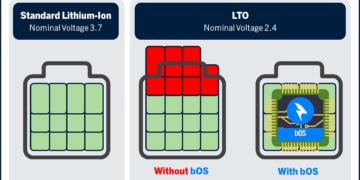
If you read the contract for your annuity or permanent life insurance policy, you’ll encounter insurance industry terms that may sound similar, but mean very different things. This list includes terms such as face value, cash value, cash surrender value, surrender cost, and account value. The differences among these concepts are sometimes small, but they can make a big difference if you need to pull money from your policy.
The cash value and surrender value are not the same as the policy’s face value, which is the death benefit. However, outstanding loans against the policy’s cash value can reduce the total death benefit.
Key Takeaways
- Cash value, or account value, is equal to the sum of money that builds inside a cash-value–generating annuity or permanent life insurance policy.
- Permanent life insurance policies may accumulate a growing cash value. Term policies do not have such a value.
- The cash value in such policies may be tax-free.
- After a certain period, the surrender costs will no longer be in effect, and your cash value and surrender value will be the same.
- Another option is to take out a policy loan to access the cash value. Policy dividends may cover the interest due on the loan.
Cash Value
Cash value, or account value, is equal to the sum of money that builds inside of a cash-value–generating annuity or permanent life insurance policy. It is the money held in your account. Your insurance or annuity provider allocates some of the money you pay through premiums toward investments—such as a bond portfolio—and then credits your policy based on the performance of those investments.
In the United States, it is technically illegal for a life insurance policy to market itself as an investment vehicle. Still, many policyholders use their whole life, universal life (UL),r or variable universal life insurance (VUL) policies to grow tax-advantaged retirement assets.
The cash value in a permanent life insurance policy is generated using a portion of the premiums paid into the policy, plus any dividends that may be regularly credited to the policy. The cash value in a policy may be used to increase the death benefit, but you can also use the cash as so-called living benefits. These include the ability to take loans against the cash value in the policy or make partial withdrawals. As you make withdrawals, the death benefit may also reduce. In the event of a full surrender, the entire cash value is withdrawn and the policy canceled.
Surrender Value
The surrender value is the actual sum of money a policyholder will receive if they try to access the cash value of a policy. Other names include the surrender cash value or, in the case of annuities, annuity surrender value. In most whole life insurance plans, the cash value is guaranteed, but it can only be surrendered when the policy is canceled. Policyholders may borrow or withdraw a portion of their cash value for current use. In universal life insurance plans, the cash value is not guaranteed. However, after the first year, it can be partially surrendered.
Often a penalty is assessed for early withdrawal of cash from a policy. In most cases, the difference between your policy’s cash value and surrender value are the charges associated with early termination. Since your insurance provider doesn’t want you to stop paying premiums or request an early withdrawal of funds, it often builds different fees and costs into policies to deter you from canceling your policy The surrender fees will reduce your surrender value. These costs and the policy’s surrender value can fluctuate over the life of a policy. After a certain time period the surrender costs will no longer be in effect. At this point, your cash value and surrender value will be the same.
The process through which you access your cash surrender value varies based on the policy you have, but many require that you cancel the policy before accessing the funds. Even if this is the case, it may be possible to take a loan out against the cash value in your policy.
Surrender fees are typically no longer in effect after 10 to 15 years for a whole life or universal life insurance policy.
The SECURE Act and Surrender Fees
Prior to the Setting Every Community Up for Retirement Enhancement (SECURE) Act of 2019, people who held annuities in an employer-sponsored retirement account—such as a 401(k) plan—faced the possibility of paying surrender charges and fees in the event they changed jobs or their employer discontinued offering annuities as a retirement option. However, the SECURE Act makes annuity plans offered in a 401(k) portable. This means participants can transfer their annuity plan to another employer-sponsored plan or IRA without liquidating their annuity and paying surrender fees.
Special Considerations
Many people choose whole life insurance products that include a cash-value feature. With this feature, a portion of each monthly premium deposits into a cash account held within the policy. This cash accumulation is invested in approved funds and grows tax-free, which is the reason many policyholders use the cash account as a form of retirement account. When used this way, policyholders will often pay more than the required monthly premium to build the tax-free cash account.
In 1988, the Technical and Miscellaneous Revenue Act (TAMRA) set limits on cash held in these accounts. Called the seven-year pay test, it determines if premiums paid within the first seven years of a policy’s life amount to more than was required to be paid into the account. If this total is more, an account is deemed a modified endowment contract (MEC) and becomes subject to having gains from the cash account taxed as regular income.
Investopedia / Sabrina Jiang
Cash Value vs. Surrender Value Example
Suppose you purchase a whole life insurance policy with a death benefit of $200,000. After 10 years of making consistent, on-time payments, there is $10,000 of cash value in the policy. You consult your insurance contract and see that the surrender charge after 10 years is equal to 35%.
This fee means if you tried to cancel your policy after 10 years and withdraw your cash value, the insurance provider will assess a $3,500 charge to your cash value, leaving you with a surrender value of $6,500.
Why should you care about cash value?
Cash value is the money held in your permanent life insurance or cash-value–generating annuity. It builds when your insurance or annuity provider invests some of your premium in bonds or another vehicle. You will be penalized if you tap this money early.
How are surrender and cash value different?
Say you decide to spend the money accumulated in your account. Fees will be assessed for doing so—surrender fees for accessing the money and, possibly, early withdrawal penalties. Surrender value is the amount you’ll be paid once you choose to terminate the policy.
How do I avoid paying surrender fees?
Most surrender fees go away after 10-15 years. However, policies can differ depending on the issuer so it’s important to understand the issue of surrender fees before you complete your policy application and to fully read all the policy disclosures.
Do you have to pay tax on cash or surrender value?
Generally, the cash surrender value you receive on a life insurance policy is handed over tax-free. This is because it is considered a return of premiums paid into the policy.














